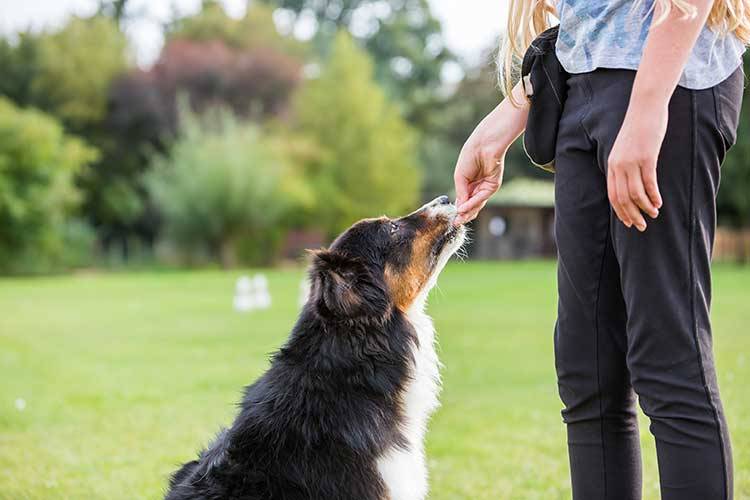Randomly Rewarding Training Treats
Dog training treats are extremely useful when teaching your dog new behaviors. Once your dog has practiced a specific behavior in a myriad of situations with various distractions, it’s time to start fading treats. But not so fast! There’s a technique to fading treats during dog training! 🙂
Fading Dog Training Treats and Gambling
Randomly rewarding your dog’s behavior works. People are rewarded randomly every day at casinos. Gamblers learn to continue playing the game in hopes of a large payout even after long sessions without winning. It’s so effective that gambling can become addicting. Another example of a variable reward system is the lottery. Despite the 1 billion to 1 odds of winning the lottery, people still shell out their hard-earned money because the payout is extremely valuable to them.
How to Fade Dog Training Treats
Before fading a cue, make sure your dog completely understands how to perform a behavior first. If working on a “down” cue, the dog should respond quickly (within 1 second) to a cue (verbal or hand signal). You should also have your dog practice the “down” cue in your house, in the backyard, during walks and at a park.
Once your dog responds to the cue 90% of the time (lays down when given a “down” cue), it’s time to fade training treats.
When fading dog training treats, you’re rewarding your dog fewer times. You reward your dog only for the best of the best attempts. For example, you should only reward your dog for fast response time (latency) to a cue.
This variable schedule of reinforcement coupled with high value pea-sized treats fine-tunes your dog’s response to cues and his behavior while fading the use of training treats.
RELATED: 4 Dog Training Cues Every Dog Should Know
Don’t Fade Too Fast
Sometimes, pet owners become too picky about rewarding behaviors and decrease food rewards too quickly. Usually, this results in a confused and frustrated dog that gives up. In addition, the behavior usually falls apart, meaning a dog stops responding to a cue or offers a different behavior instead.
If this happens, take a few steps back and reward every successful attempt for several days. Then, slowly fade treats by rewarding 4 out of 5 attempts for a few days and then 3 out of 5 attempts and so forth. Then, it’s time to reward the fastest response after a cue or desired behaviors around distractions.
Don’t Completely Toss Out Training Treats
Remember, to maintain a behavior, there must be a payout (hence gambling)! When a dog responses to a cue around a tough distraction, give your dog lots of treats. If a dog comes when called while watching a squirrel run across the backyard, make treats rain from the sky. Also, use dog treats to jump-start an old behavior and teach new ones.
Dog training treats are a valuable part of the learning process for dogs, so fade only when appropriate.





